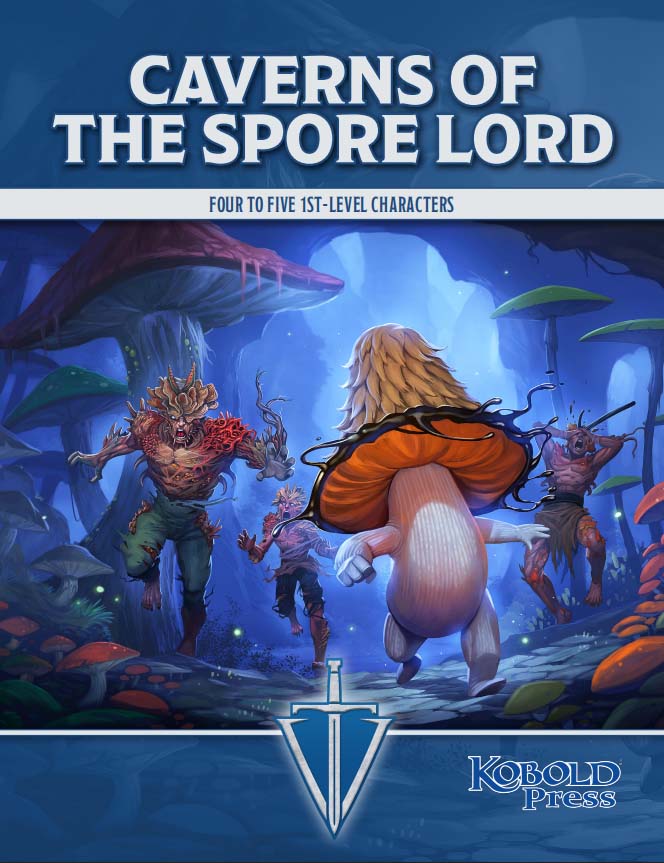When an editor writes back and tells you that your storyline is terrible, it’s usually a good sign that your writing is progressing well. Seem strange? Well, it could be worse. That editor…
Could be telling you that you have problems not with something as advanced as storyline, but with a lot more basic issues of craft and design. Critique at a high level is a compliment to a game designer or writer. An editor who sees more basic errors is unlikely to comment on your writing much, if at all.
Unlike some publications, though, Kobold Quarterly does respond to most submissions. Here’s a quick guide to what magazine and web site editors mean when they respond to a query.
(1) What It Says
(2) What Editors Really Mean
(3) What To Do
(1) Form Rejection
(2) Your writing is not publishable
(3) Read, practice, and improve basic skills
(1) Read the guidelines
(2) You aren’t querying your submissions
(3) Read the guidelines
(1) “Not for us”
(2) You are hitting the wrong market
(3) Find another topic for that magazine
(1) Work on story
(2) You need better narrative and flavor
(3) Read fiction, nonfiction, whatever inspires you
(1) Work on mechanics
(2) Your game design is unbalanced
(3) Playtest more, or get a blind playtest going
(1) Resubmit
(2) Your timing is bad
(3) Resubmit as requested; it’s not a trick
(1) “Already got one”
(2) Someone beat you to the topic
(3) Find another topic
Editors learn a million ways to say “No.” There’s no way around it; there’s limited time to edit, contract, illustrate and publish work. Even on web sites that you might expect have “no space limitations,” there’s always time and money limitations. Accepting an author’s work is a commitment to edit it and present it as well as possible to the audience. No editor wants to accept work unless they can give the best possible value to the reader from it.
But what if your idea is brilliant? Well, it may very well be. Sadly, a good idea is just the start of a successful submission. If it isn’t honed to a razor’s edge, it is still unlikely to find a home.
Articles that require lots of rework are usually junked in favor of something that’s both a good idea and well-written, with prose that grabs the reader’s interest from the start and keeps it all the way through. Clichés, passive voice, over or underpowered design, and just plain being boring will all kill even a great idea dead.
On the other hand, if the writing is halfway good, a good idea may make an editor love it enough for it to find a home.
One other myth is worth addressing: the notion that editors somehow carefully guide and instruct writers is a pernicious falsehood, probably based on too much Hollywood stereotyping. It’s your job as a writer to learn your craft and practice it well. It’s an editor’s job to find the writers who do that best and present their work to an audience. It is not an editor’s job to give you “just a few tips” about your writing.
This isn’t because editors are hard-hearted bastards (well, maybe some are. I digress).
The fact is that no editor has time to spare to tell every rejected author what they are doing wrong. Some editors will do so in offhand notes: treat these as gold and try to improve. But in my experience, editors are too busy meeting their own deadlines to spare much time for “writer education.” When it happens, it means that an editor values a writer’s work and that the two have an established relationship and rapport. It’s usually a matter of a longer-term relationship, such as a novelist who has written several works, or a magazine freelancer who has a few notches on her belt.
Most of the time, the way an editor makes a writer better in the public eye is by developing and editing their text. That’s quite enough work, especially when it is technical editing of the kind that involves rules and stat blocks. You can always ask an editor for hints on your work; I see it constantly, and really, I want to help. But unless I’m addressing an audience (such as here), it’s usually a chunk of time that would be better spent elsewhere. The smart writers are the ones who figure out what to improve in their own work over time (or figure out what sins an editor will forgive, but that’s not something I want to encourage).
In any case, there you go. Editors aren’t trying to psych you out. They aren’t ignoring your requests for help. They work hard to please the people who they ultimately serve: the readers. As an advocate for readers, they sort the good from the bad during the acquisitions, and then polish and rework the text to strengthen its weak spots and to bring the highest luster to the strengths that attracted the editor’s eye in the first place.
Which reminds me: The Kobold Quarterly submission guidelines are available for all subscribers and patrons to query. Please include your name, address, and word count on your manuscript. Yes, submitting means you’re joining a street fight to the top of the slush pile, against some wily freelancers with long experience and longer knives. But there’s nothing I would rather do than find a brand new talent, shining in slush like a gem that needs just a tiny bit of work to make it shine.


Oh well, my colleagues have introduced an Designer Belt online store. They said that price and quality are very good. Can you give me more suggestions?